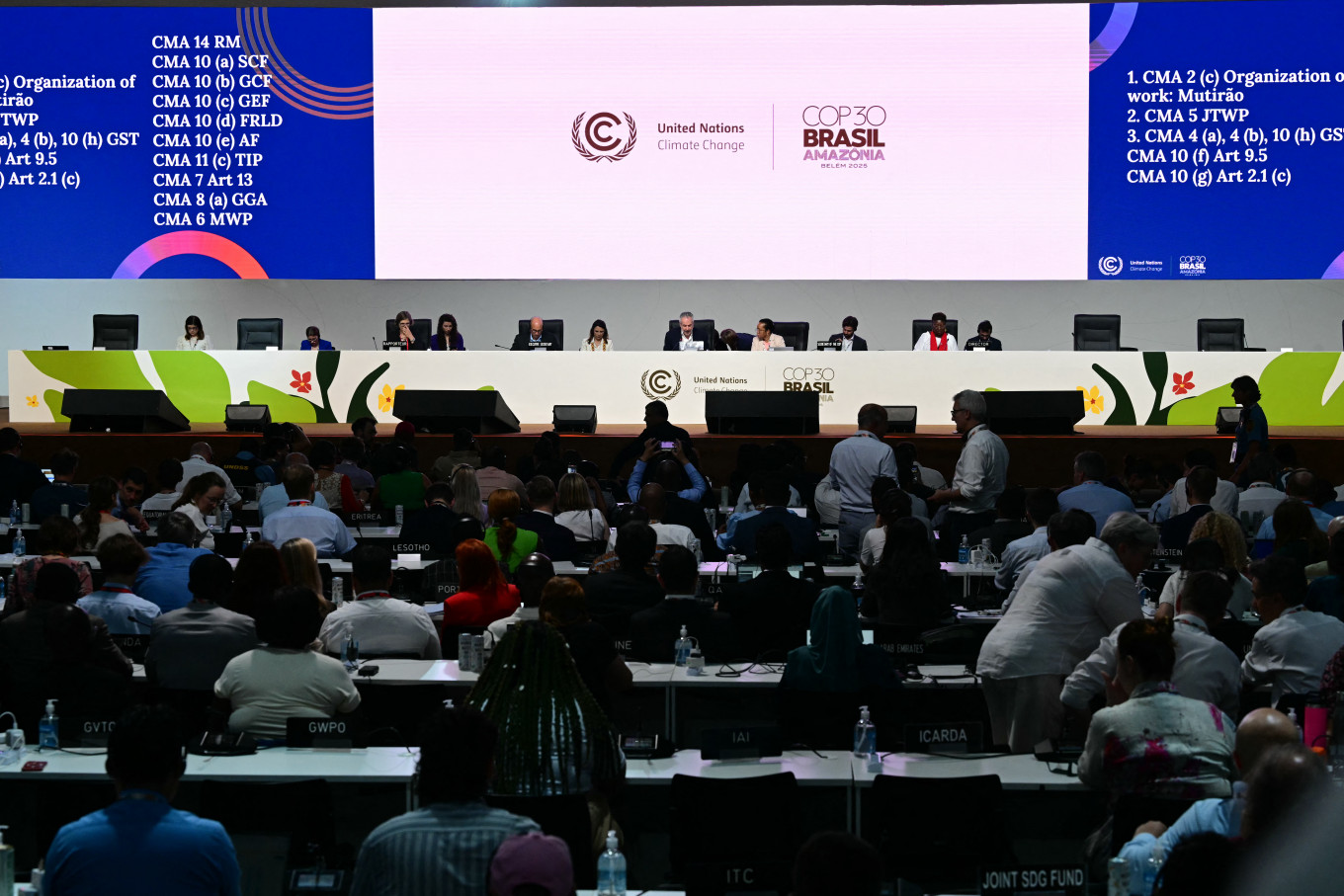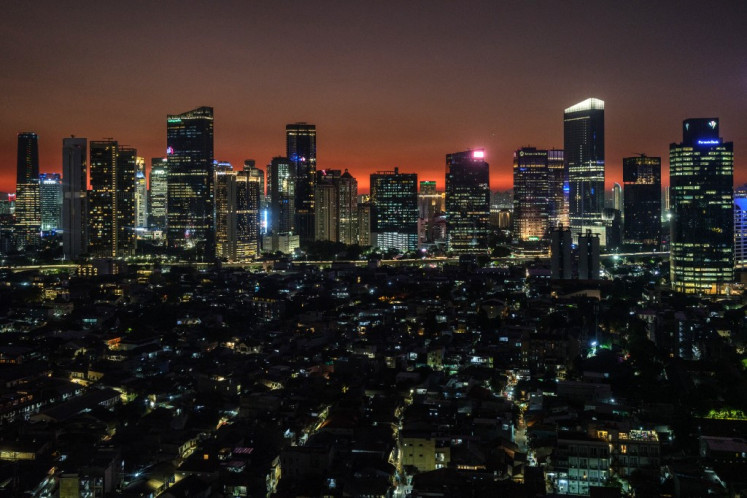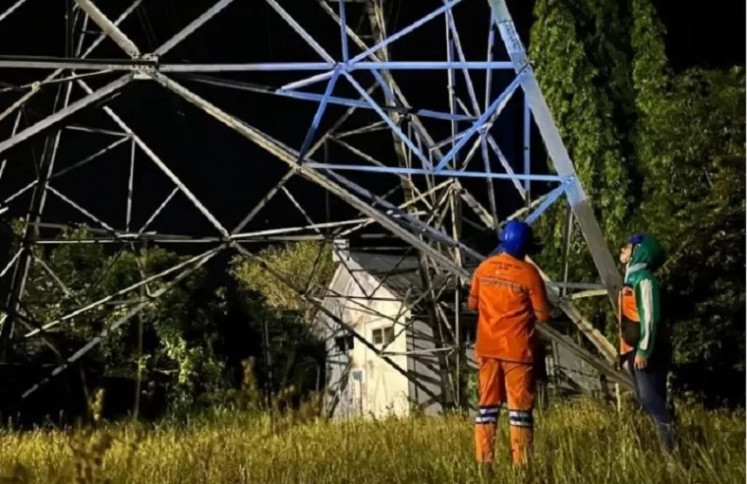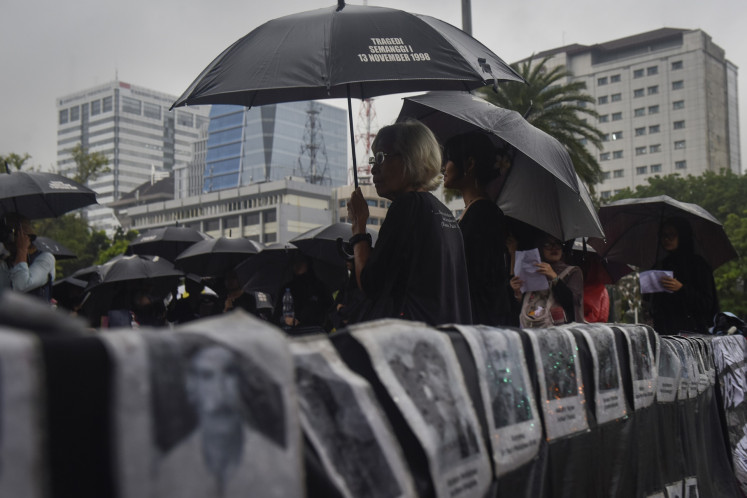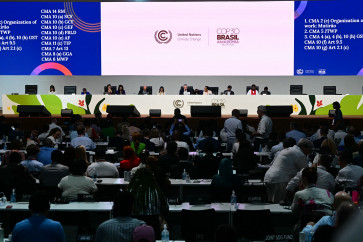Popular Reads
Top Results
Can't find what you're looking for?
View all search resultsPopular Reads
Top Results
Can't find what you're looking for?
View all search resultsCOP30 divides the world between forests and fossil fuels
The net-zero goal still seems to be on a distant horizon after COP30, where a line between forest advocates and fossil fuel lobbyists was visible.
Change text size
Gift Premium Articles
to Anyone
T
he 30th United Nations Climate Change Conference (COP30), billed as the “rainforest COP” and the “implementation COP” by host Brazil and which was marked by a fire incident, has concluded. While its outcomes may not be as groundbreaking as the Kyoto Protocol in 1997, the Bali Road Map in 2007 or the Paris Agreement in 2015, Brazil deserves recognition for navigating such complex negotiations spanning energy, land, food, health, funding, indigenous communities and local populations.
The “global mutirão”, referring to Brazil's version of gotong-royong (mutual help), emphasizes collective action toward a shared goal. This spirit of cooperation was evident in various dialogues, particularly on adaptation, biodiversity, local communities and indigenous peoples, marking the conclusion of COP30 with a message of unity and solidarity with the marginalized.
However, many are disappointed when comparing the progress made over the past three decades with the milestones achieved in Kyoto, Bali and Paris. Of particular concern is the latter’s unfulfilled promise of US$100 billion in annual funding to address rising temperatures, which have already exceeded the upper threshold.
At present, the world seems to be divided between the issues of forests and fossil fuels. The COP30 host, supported by tropical forest countries, highlights funding to protect forests, while the Arab bloc is reluctant to phase out fossil fuels anytime soon.
The fossil fuel era is far from over. Net-zero emissions are only visible as mirages in the deserts of Arab oil-producing countries.
The fossil fuel lobby, which had a significant presence in the Indonesian delegation, earned the country the "Fossil of the Day Award" from the Climate Action Network, a network of NGOs that publishes the eagerly awaited daily ECO newsletter on COP negotiations.
Of the dozens of agenda items, some of which were agreed, debates revolved around funding, emissions reduction and carbon trading, not all of which were resolved by the time the conference came to a close.

